Sunny Rhyl used to swarm with holidaymakers – and then it died
This former holiday destination is said to be the second most dangerous town in the country. Amid the soaring crime rates, Matthew Barnett talks to locals who still care deeply for the area
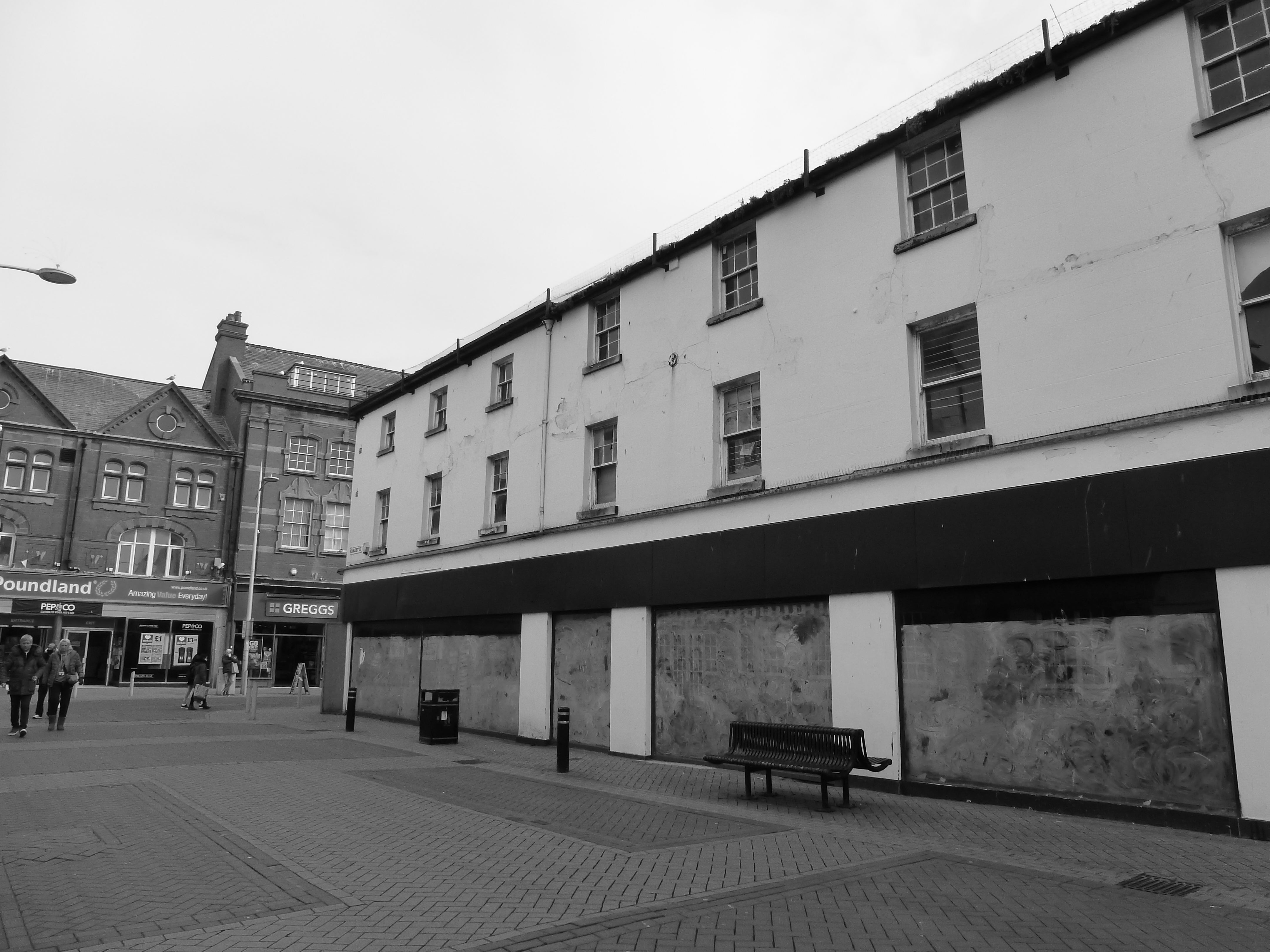
Mention the name Rhyl and for many people it conjures an image of family holidays on the North Wales coast, dodgem cars and long sandy beaches, albeit a bit dated now. For a certain generation it might trigger memories of mum and dad struggling to fit assorted sunbeds, spades and overexcited kids into the back of a Ford Anglia. But those boom days as one of Britain’s most popular holiday destinations have long gone.
As with many other seaside towns the cold wind of changing holiday habits began to blow ever more insistently from the 1970s as foreign travel and the relative glamour of the Spanish Costas and Greek tavernas became more affordable. And while other Welsh resorts either redefined themselves or, like Aberystwyth, had a university community to provide meaning and context, Rhyl has struggled with what almost amounts to an existential dilemma centred on its very identity.
The cumulative effect has been catastrophic, not only economically but socially. According to the Welsh Index of Multiple Deprivation, published every five years, two of its electoral wards are officially the most deprived in Wales, West Rhyl 2 being ranked as the very worst out of 1,896 of the country’s “lower super output” areas. It is also ranked “the most dangerous medium-sized town” in Clwyd, and the second most dangerous in the whole of England, Wales and Northern Ireland, the most common crimes being violence and sexual offences. Moreover, these crimes, along with drug abuse, possession of weapons and public order offences are deemed to be worsening.
Of course, statistics only tell part of the story, but where Rhyl was once one of Britain’s most popular holiday destinations, it has now become a byword for deprivation, crime and urban decay.
Leading the charge to rehabilitate the town is Denbighshire County Council, which published its West Rhyl Regeneration Plan in 2013. Among its aims is to create a “transformational sense of place with an open space at its core which serves as a valuable community asset”. More generally, it plans to stimulate new employment uses, which “support the visitor and retail economy and provide local jobs”, while delivering an “improved public realm”, which is safe and more accessible.
The council’s leader since 2007, Hugh Evans, is under no illusions as to the scale of the challenge. “The buzz has gone from parts of Rhyl and there is a lack of energy. It started around 30 years ago, but at the time there was a lack of recognition of the challenges facing coastal towns combined with a failure to address the problems, in which case the challenge today is so much greater.
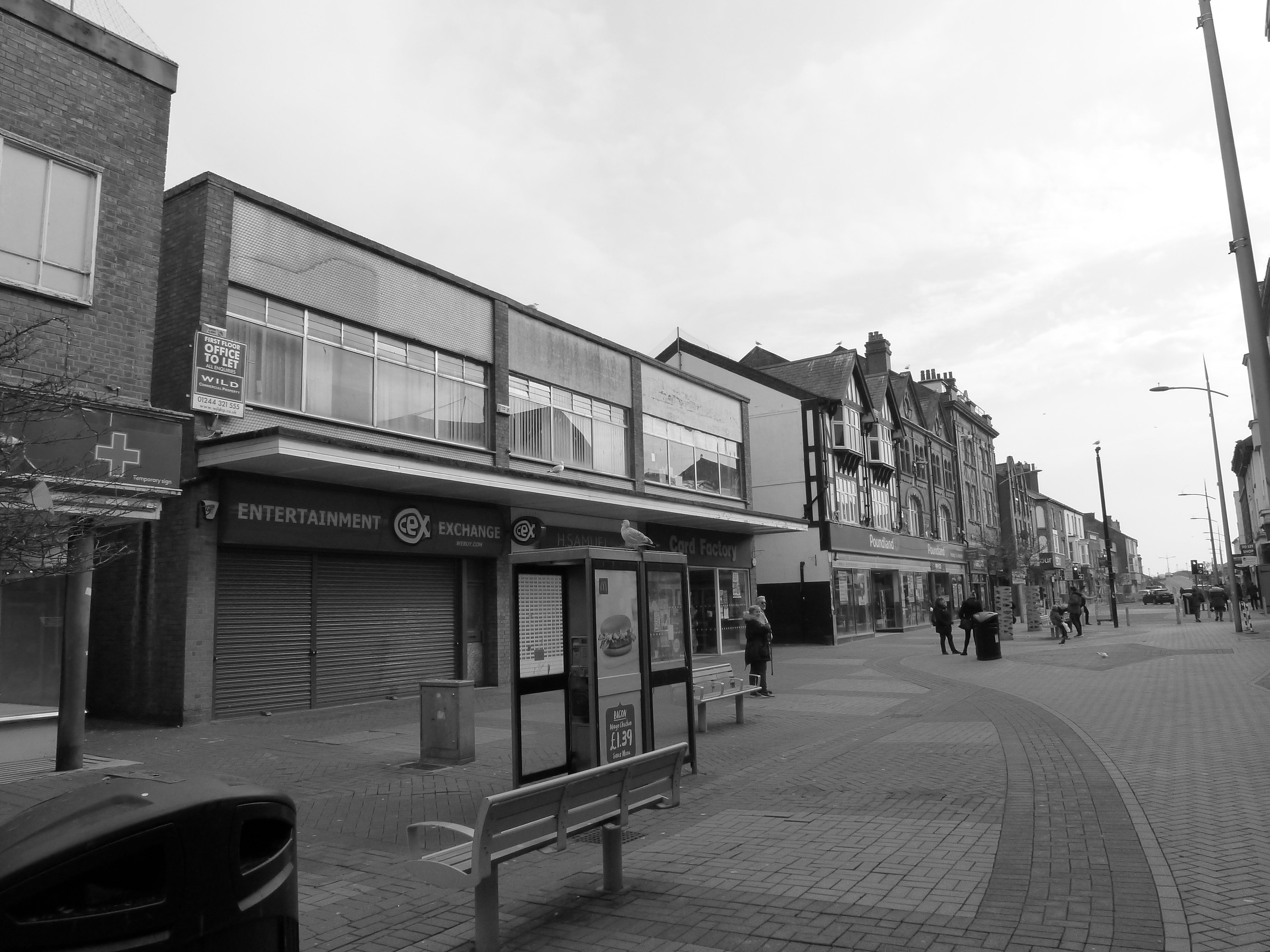
“When Rhyl’s decline as a tourist town began to bite, many outsiders saw their chance with HMOs (houses of multiple occupation) and this has been a critical element – landlords from outside Wales housing tenants in the most terrible conditions. That has spawned so many other issues.”
A £25 million West Rhyl housing project launched eight years ago led to the pulling down and replacement of some of the worst housing, which Evans says has improved the community, but he acknowledges that it needs to be both “maintained and sustained long term. When the public sector invests and has confidence then the private sector tends to follow suit.”
The result is the Rhyl Town Centre Vision, produced two years ago and which contains “eight big ideas”. These include “reuniting” the beach with the town centre, expanding choice in retail and food, creating a more vibrant town centre with a more vital night life and transforming what are known as The Queen’s Buildings into a vibrant marketplace.
Central to this vision is to create a “modern, distinctive seaside town that meets the needs of its community and gives people from in and outside Rhyl a reason to visit”. But this means almost re-imagining Rhyl, a daunting task given how the town naturally developed around its seafront and tourism.
Following the demise and demolition in the 1970s of many of the town’s historic Victorian landmarks – buildings that defined Rhyl such as its five-domed Pavilion Theatre, iconic pier and 12-hectare Marine Lake Funfair – the past 20 years have mostly been a catalogue of failed developments and stalled projects. The Marine Lake complex disappeared in the 1960s, to be followed by nearby Ocean Beach, which was closed and demolished in 2007 to make way for yet another project dubbed Ocean Plaza whose developers went bankrupt two years later.
Homeless people aren’t socially inadequate, they are just people without a roof over their head
And while politicians debate and plans are mulled over and considered, the pressure continues to mount on public services and a host of voluntary charities, housing associations and other bodies which continue to struggle with rising crime and the fallout from homelessness and poverty. I decided to see for myself.
Approaching Rhyl through Towyn is a strange, almost surreal experience, especially out of season, which now means most of the year. Everything, from the serried ranks of chalets and caravans to the single-storey roadside attractions with their garish slogans, has a temporary air, almost like stage scenery – a Hollywood set in a North Wales Western. I paused to get my bearings next to a large, boarded up Victorian Church. The whole area seemed semi-deserted, an effect accentuated by its location: on one side the wide sweep of coast and huge skies, on the other a sea of low roofed bungalows.
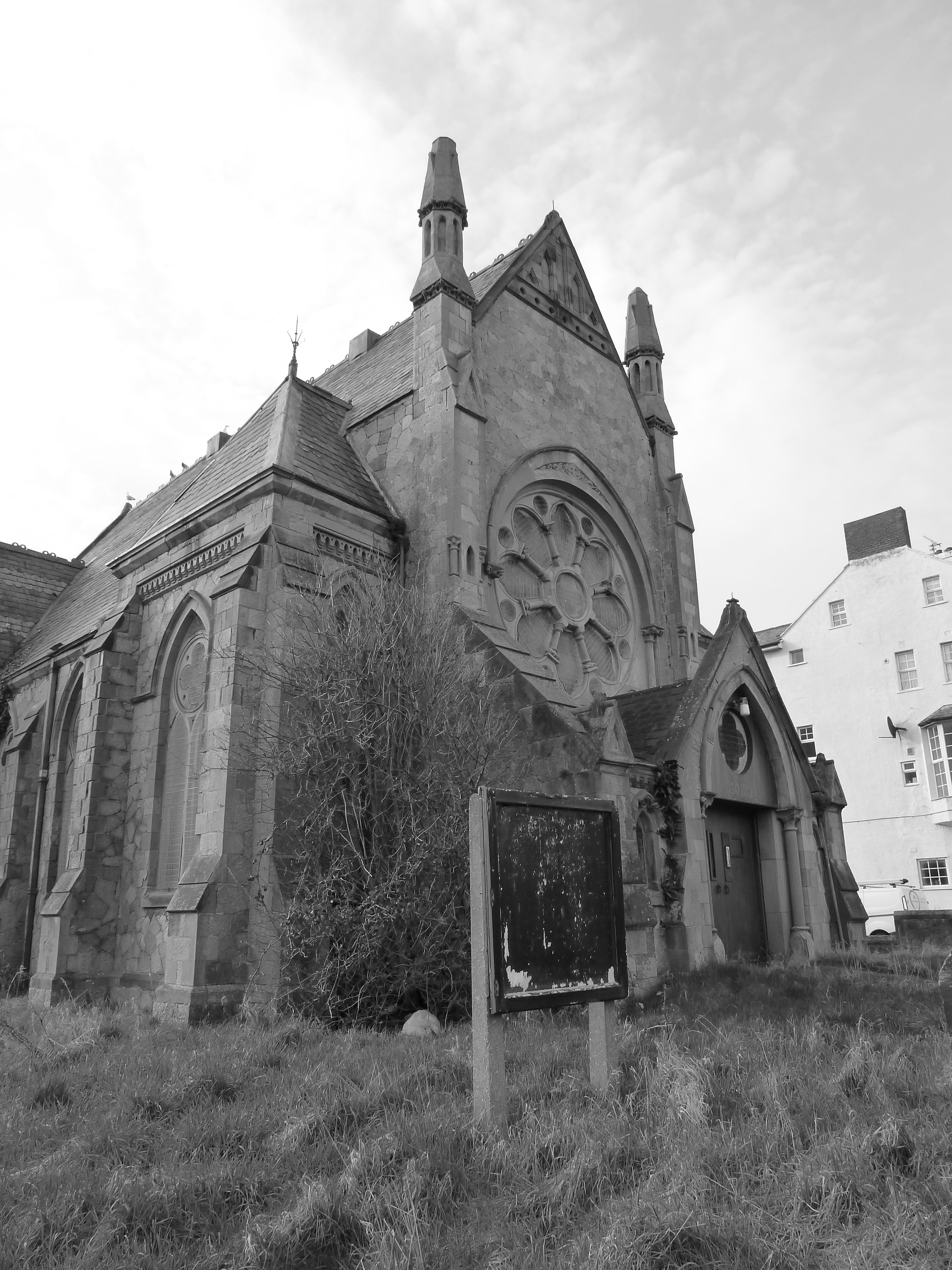
One of the area’s largest housing associations is ClwydAlyn, which runs a hostel for the homeless in Rhyl called the Ty Golau Project. Funded by a housing support grant it offers help ranging from emergency accommodation to “high intensity” support in flats. Men or women over the age of 18 are eligible, while further advice is provided for drug and alcohol abuse and welfare benefits.
Senior project officer Lynda Williams explained that visitors require help for many reasons and gone are the typical stereotypes of down-and-outs. Now people of all ages and backgrounds can find themselves without a place to go. When I visited there were nine.
“They might be fleeing their home-town because of domestic abuse or they just don’t feel safe. Because of lockdown we’ve had to accommodate a lot of rough sleepers, some of whom have been here almost permanently for a year or more. If they’re from outside our area we’ll contact their local services and help them to return.”
Most are between 18 and their late sixties, but a few are older.
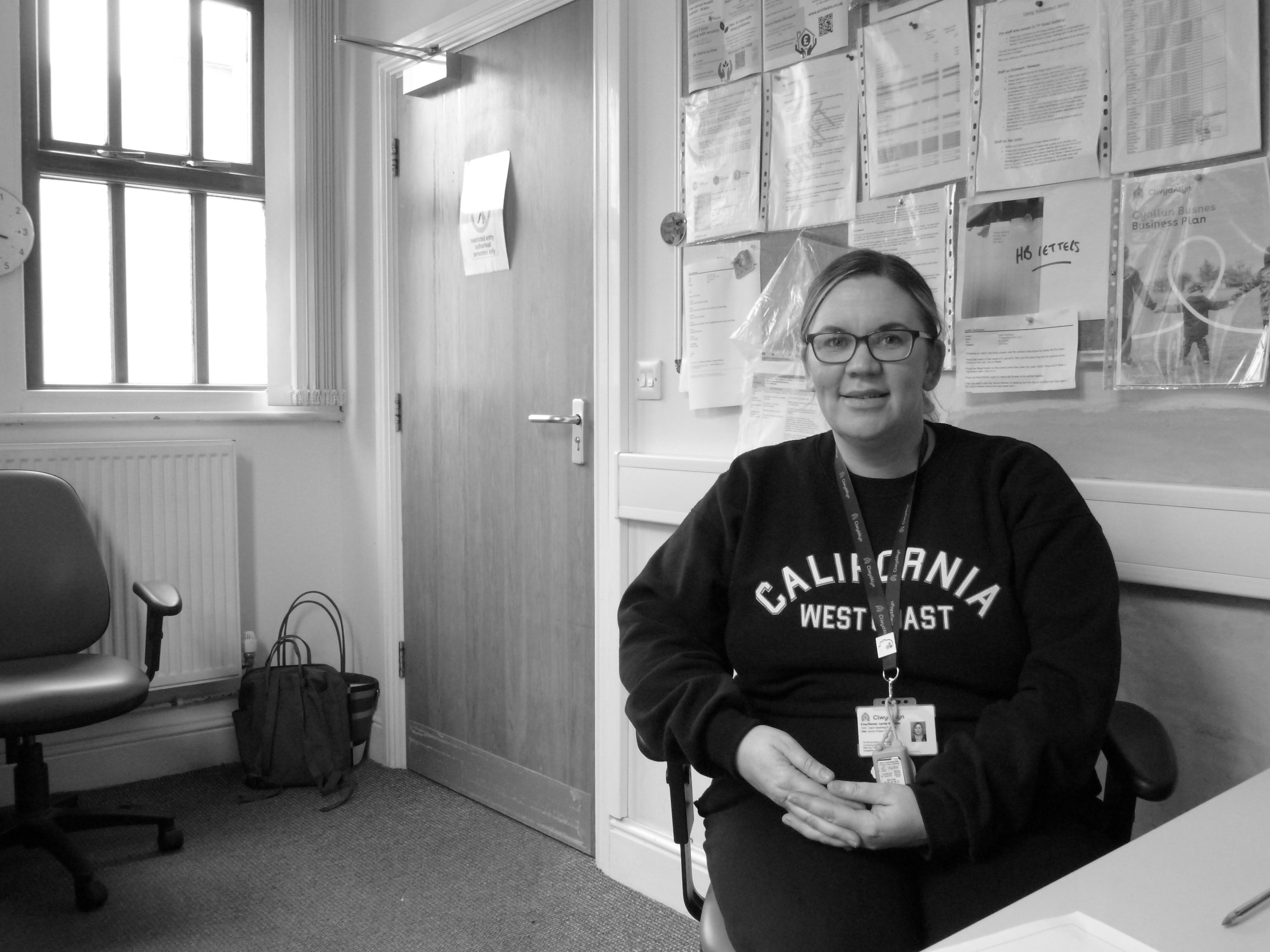
‘We had an 82 year-old gentleman who had dementia and who’d been travelling around and didn’t know where he was – the police brought him in. We discovered that his wife had died and he’d headed back to Llandudno which had memories for him as that’s where he used to go with her. He ended up safely back in his nursing home.’
She feels strongly that the homeless are unnecessarily stigmatised. “Homeless people aren’t socially inadequate, they are just people without a roof over their head. Many have had a particular trauma, sometimes they made the wrong decisions when they weren’t well enough.”
Lynda is part of a team of 10 and admits that while it brings great rewards, being at the frontline can be harrowing. “There have been times over the past 12 months when I’ve gone upstairs and cried my eyes out, it’s tough. Like one young guy who just called and said he was going to cut his throat and walk into the sea. I literally went straight out with a member of staff and went to the beach to find him. We did. And that sort of thing has happened many times.”
Asked about what changes should be made in Rhyl, she feels one answer lies in the number and range of shops. “So many have closed, and it’s vital that to make a town work you need the right kind of shops: butchers, a proper market. Look at Prestatyn and the variety of shops there. We need more specialist shops. We still attract holidaymakers but we need the shops to keep them.”

One visitor is Adam Murray, who’s been housed in Ty Golau for 12 months. Now 44 he struggled with heroin and crack, a habit which began when he was 17. “I always wanted to be a chef. I was working at a country house hotel when the head chef introduced me to heroin.”
He says it hurts seeing how Rhyl has changed since his parents ran a B&B in the 90s. “Rhyl seems to be a dumping ground for a lot of troubled individuals. When the old Denbigh mental asylum closed in the mid-nineties they came up with care-in-the-community style support in bedsits, so loads of people with social issues were put into the community with CPN’s visiting, it was a disaster.”
Thankful for the support ClwydAlyn has provided, Adam wants to get back to work and proper social housing with a capped rent, “mainly for my nine year-old daughter”.
Sitting on a low brick wall near the seafront and drinking from a can of lager, I met Andy Smith, now in his fifties. A well-known “character” he tells me that he’s lived in Rhyl all his life, growing up on the notorious Reso housing estate. In and out of prison, this is his longest stretch outside, two and a half years. He’s had an eventful life, much of it drinking.
“I started when I was 12, just to feel normal. I was so anxious even then, and that’s where the money goes. My brother was one of the biggest drug dealers in Rhyl, he was getting six grand’s worth a month. He got five years. And what’s changed? There’s more violence and drugs in River Street than I’ve ever seen. Just recently I saw a guy beat up a bus driver and try to nick his bus.”
There’s more violence and drugs in River Street than I’ve ever seen. Just recently I saw a guy beat up a bus driver and try to nick his bus
He’s on a Crasbo (anti-social behaviour order), “because of my drinking”.’ Restricted to one side of town he’s been unable to see a doctor but a local church stepped in, finding him a flat.
The person who helped Andy is Eunice Parry, manager at the Ask Centre, a drop-in run by the United Church and in the heart of West Rhyl. She says that the town’s problems are mostly to do with accommodation and that landlords are not responsible enough.
“Some of the conditions that homeless people are in are scandalous and one of the most common reasons why we are approached concerns problems with housing. But I have noticed a shift in behaviour, especially since Lockdown. There are more desperate people. One young guy came to ask if he could charge his phone and I discovered that he’d been living in a tent for weeks.”
Around the corner in Sussex Street the Rev Trevor Casey has been minister at the Baptist Church for 12 years. His views echo many others, especially regarding homelessness and how to improve Rhyl.
“Many residents in rented accommodation don’t feel secure: if they complain they get moved on, often into temporary hotels funded by the council. But it means putting them with other homeless people which isn’t appropriate as many of them may be drug addicts.
“Rhyl’s decline began when Tesco opened in Prestatyn. Stores like Burtons, M&S and Holland & Barrett moved there, so now if you need to shop you have to be mobile. The problem is that those in authority seem to have given up on the people of Rhyl. What the council is planning here isn’t necessarily going to help. Does the centre need a market? What we do need is a programme of affordable shops and some major employers where young people can get training. As it is they have no incentive to move off benefits because if you land even a small job they get cut.”
If I had a blank cheque I’d relocate many more vibrant businesses to Rhyl – smaller, single, more exciting businesses
He and his team have been running a food bank and a Fair Share scheme using surplus supermarket produce which they put on Facebook. “Around 30 to 40 people collected food every day, including some with families, so we were feeding around 100 or more daily. Many were ordinary people who weren’t addicts but just struggling.”
His views are shared by Natasha Harper at Rhyl’s Good News in the Community. She moved to Rhyl 22 years ago and agrees that many of the proposed schemes are missing the point. “It’s all very well creating new water parks and leisure facilities but few people here can afford them. The council isn’t good at listening, they’re out of touch and don’t seem to know about food banks. Money is being thrown away and most of the schemes are useless to those on furlough or not working.”
She advocates closer engagement, especially with many of the younger residents who, she says “have good ideas about what Rhyl needs”. One key area she feels is in training people to budget effectively and learn life skills such as cooking.
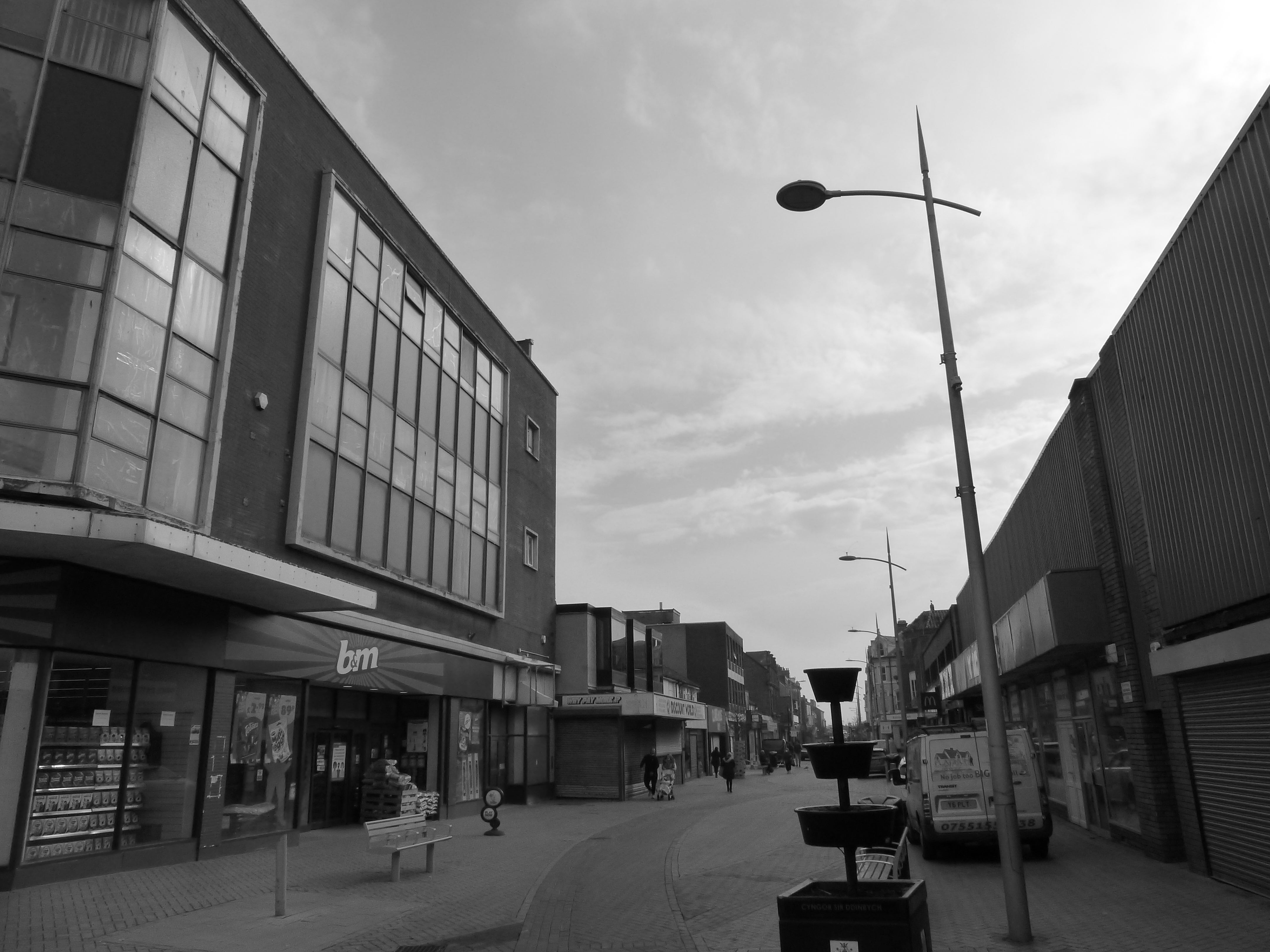
ClwydAlyn’s chief executive, Clare Budden, says that many North Wales coastal towns experience a relatively high level of homelessness, partly because the area is accessible from the great conurbations of the North West and it appeals as an attractive place to escape. But she agrees that Rhyl faces particular challenges.
“Rhyl still has tourism but it’s seasonal and the pandemic has made things more challenging. We have more work to do around employment and access to well paid jobs to try and address the fundamental inequality of homelessness.
“We’re working closely with the council on a new strategy, part of which includes the development of brown field sites to create more housing provision. What places like West Rhyl desperately need is a broader range of people and a mix of private ownership, as well as decent places to go. But the pressures on the system are greater now because the council needs to build more property but costs are going up and we still have the effects of Covid.”
With furlough coming to an end, together with restrictions on landlords being able to evict tenants who have outstanding rent debt, she fears the homeless situation could worsen.
“We’re going to see more people in court, so that’s a concern. But we, along with the Welsh government, have a commitment to supporting homeless people and a policy not to evict. We know that if we do they’ll be thrown on to the local authority. The truth is that many are genuinely stressed and in need. Managing debt is complex and some of the incomes tenants are living on literally mean the difference between choosing food or heating. Many are struggling to survive. So managing homelessness involves a collective response from all parts of local government.”
Meanwhile, Hugh Evans feels that the keyword moving forward is quality. As he says: “It is a word that has often been missing: if we can create a quality environment that will help enormously.”
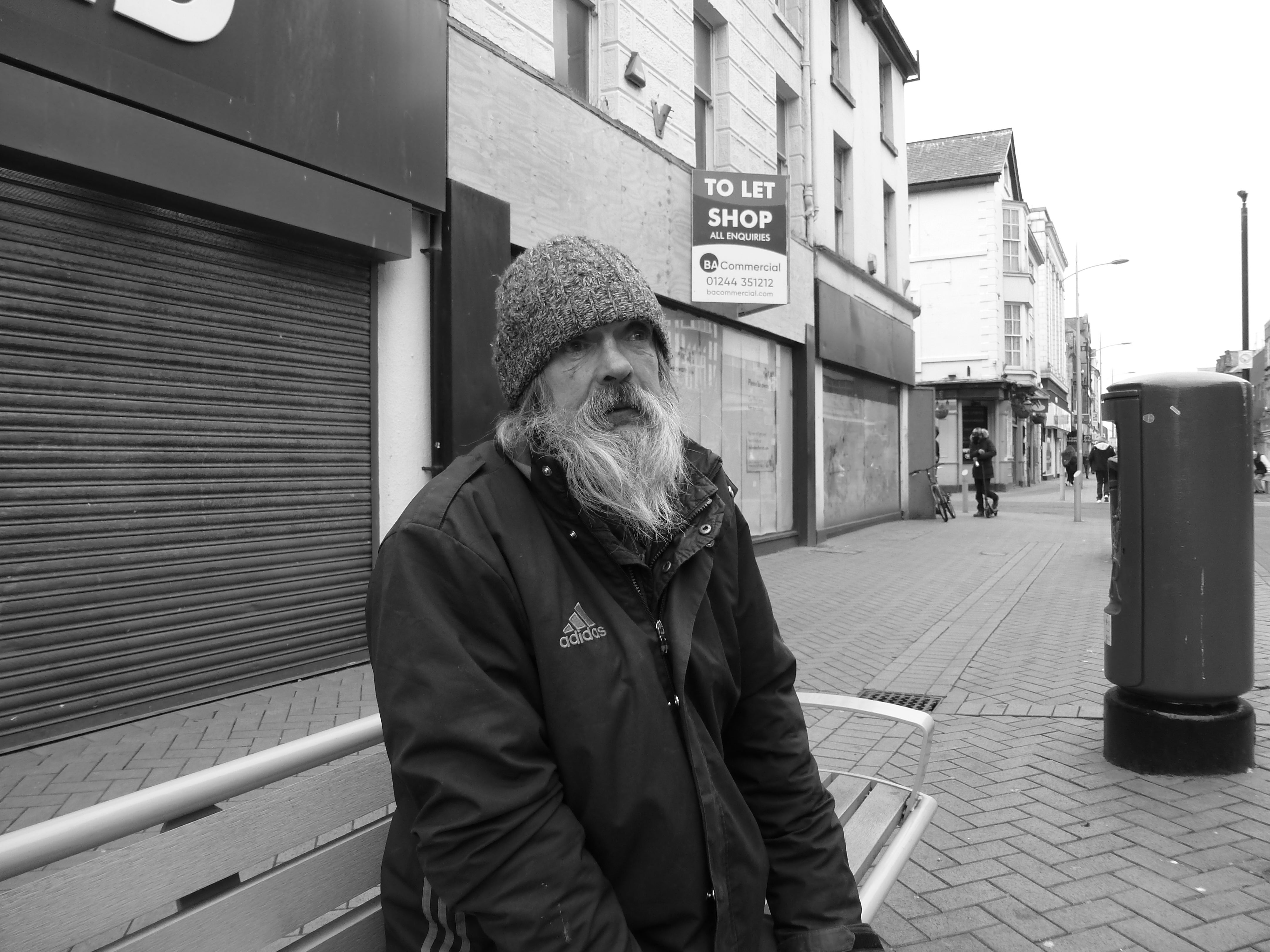
Changes are afoot. Rhyl’s pavilion has undergone a major refurb, which includes the new 1891 Restaurant, while a brand new SC2 Waterpark has also opened, their costs complemented by private sector developments including a Travelodge and Premier Inn hotels. These are predicted to attract more than 200,000 additional visitors a year to the town. Rhyl’s historic harbour has been refurbished, while there are plans for a major new community hospital. Other community initiatives are under way to improve safety on the streets and create more activities for young and old. But the road is long and winding, and uphill.
Evans adds: “Rhyl people are good people, but others moving in have caused problems. The challenge is to create an environment that people are proud of. If I had a blank cheque I’d relocate many more vibrant businesses to Rhyl – smaller, single, more exciting businesses. We also need to progress the people element faster: health deprivation in Rhyl is high and life expectancy in West Rhyl is very low. But we’re aspirational and everything is now in place to move forward.”
Back in West Rhyl I look for another character, known locally as The Major. I find him in his favourite spot near Greggs in High Street. Born in Rhyl he spent much of his childhood in children’s homes and then borstal, where he was abused. Following spells in prison he ended up with special forces being shot at in the former Yugoslavia. I asked him what he felt about the town now?
“When I was a kid it was incredible, so much to do and the town was swamped with holidaymakers. It was always sunny. But when the fair died everything else died – the town died. And that’s it.”




Join our commenting forum
Join thought-provoking conversations, follow other Independent readers and see their replies
Comments